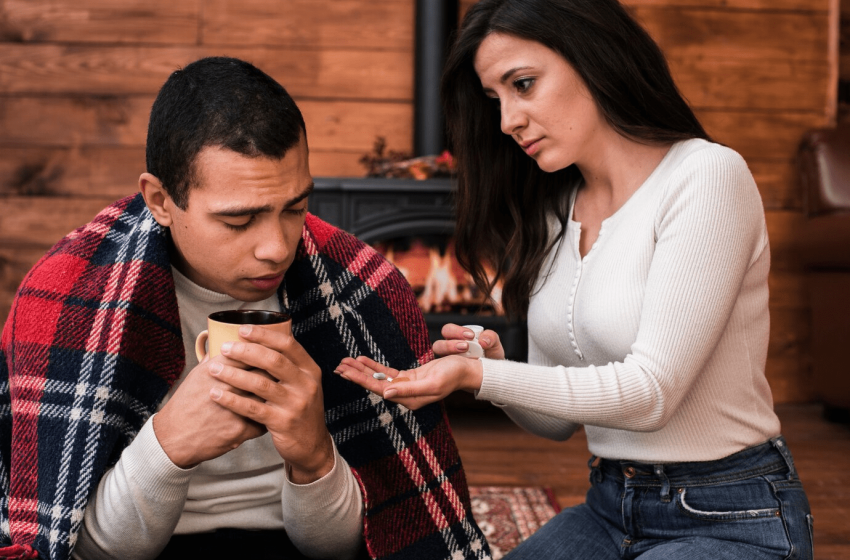Coping with Heartbreak: Healing from Relationship Addiction

Relationship addiction isn’t about loving someone deeply. It’s a compulsive need for intense and often unhealthy attachments. People with relationship addiction become obsessed with finding or maintaining a relationship, even if it’s toxic or abusive. They might prioritize the relationship over their own well-being, experiencing intense fear of abandonment and clinging to partners despite red flags.
Are toxic Relationship addiction?
Relationship addiction, on the other hand, is a compulsive need for an intense and often unhealthy attachment. People with this addiction prioritize the relationship even if it’s harmful, experiencing intense fear of abandonment and clinging to partners despite red flags. This creates a cycle of drama and emotional instability.
How to Recognize the Signs of Relationship Addiction?
Relationship addiction means getting hooked on the emotional rollercoaster of a relationship, affecting your mental health. “Online therapy” can offer support
-
Obsession with Partner: Constantly thinking about your partner and feeling anxious when you’re not together.
-
Loss of Independence: Feeling like you can’t function or make decisions without your partner’s input or approval.
-
Ignoring Red Flags: Ignoring or rationalizing unhealthy behaviors in your partner, such as manipulation or control.
-
Constant Need for Attention: Craving constant attention and validation from your partner to feel secure.
-
Neglecting Other Relationships: Spending all your time and energy on your partner while neglecting friendships, family, and other important relationships.
-
Feeling Incomplete Alone: Feeling incomplete or inadequate when you’re not in a relationship, leading to a cycle of seeking out new partners.
-
Jealousy and Possessiveness: Feeling jealous or possessive of your partner, often leading to controlling behaviors.
-
Fear of Rejection: Constantly fearing rejection or abandonment by your partner, even when there’s no evidence to support it.
-
Ignoring Personal Boundaries: Ignoring your own boundaries or sacrificing your own needs to please your partner.
-
Escaping Reality: Using relationships as a way to escape from reality or avoid dealing with personal issues or emotions.
-
Seeking External Validation: Relying on your partner’s affection or approval to feel good about yourself.
-
Ignoring Personal Growth: Neglecting personal growth or development because all your focus is on your relationship.
-
Compulsive Behavior: Engaging in compulsive behaviors, such as constantly checking your partner’s social media or monitoring their whereabouts.
-
Allowing Abuse: ——— Accepting maltreatment or abuse from your spouse because of a fear of being alone yourself.
-
Constantly Seeking New Partners: Jumping from one relationship to another without taking time to heal or reflect on past experiences.
-
Feeling Trapped: Feeling trapped or suffocated in your relationship but being unable to leave because you’re afraid of being alone.
How to Cope with Relationship Addiction?
“Facing relationship addiction is tough, but with the right support and medications, recovery is possible. Online counselor” are here to offer help and support along the way.”
-
Acknowledge the Issue: Recognize that you may have a pattern of unhealthy relationship behaviors and acknowledge the need for change.
-
Educate Yourself: Learn about healthy relationship dynamics and the signs of codependency to gain insight into your own behavior.
-
Set Boundaries: Establish and enforce boundaries in your relationships to protect your own well-being and identity.
-
Take Care of Yourself: Make it a priority to take care of your physical, emotional, and mental well-being.
-
Create a Network of Support:-Be in the company of encouraging friends, relatives, or support groups that may provide understanding and support.
-
Develop Independence: Focus on developing your own interests, hobbies, and goals outside of your relationships.
-
Communicate Effectively: Practice open and honest communication with your partner(s) to express your needs and concerns.
-
Challenge Negative Thoughts: Challenge negative beliefs about yourself and relationships, and replace them with more positive and realistic ones.
-
Learn to Say No: Practice saying no to requests or demands that compromise your values or well-being.
-
Seek Healthy Relationships: Seek out relationships that are based on mutual respect, trust, and support rather than dependency.
-
Address Underlying Issues: Explore and address any underlying issues such as past trauma or low self-esteem that may contribute to relationship addiction.
-
Practice Mindfulness: Stay present in the moment and practice mindfulness techniques to reduce anxiety and improve emotional regulation.
-
Set Goals: Set realistic goals for yourself both within and outside of your relationships, and work towards achieving them.
-
Take Time for Yourself: Schedule regular time for solitude and self-reflection to recharge and reconnect with yourself.
conclusion
With support from online counselors and loved ones, individuals can break free from relationship addiction and build healthier, more fulfilling relationships.




